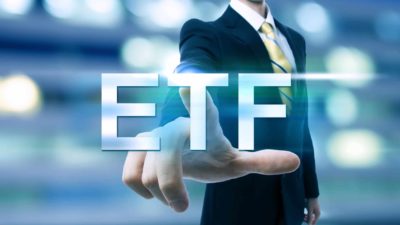When an ASX investor considers an exchange-traded fund (ETF) for their portfolio, normally the goal is to bring in the market's average return. The whole point of an index fund is, after all, to mimic the market, nothing more, nothing less. But not all ETFs are index funds. That in itself is a source of danger. Remember, beating the market is hard, and most of us statistically don't manage it. That includes active fund managers too.
But one ASX ETF has done a pretty good job. That ETF is the VanEck Vectors Wide Moat ETF (ASX: MOAT).
MOAT is an ASX-listed ETF that tracks a basket of US shares. Not just any or all US share though. This ETF holds a basket of roughly 50 companies that all demonstrate one defining feature: the presence of a moat. A moat is a term originally popularised by the great investor, Warren Buffett. The moat Buffett originally described refers to a companies' intrinsic ability to protect itself from its competition, just as a moat used to do for a castle in days of yore. There are many forms a moat can take, but characteristics such as a strong brand, a cost of stitching away from a company's products or an ability to profitably sell goods or services at the lowest cost on the market are the most well-known.
All of the companies that the MOAT ETF holds display these characteristics. VanEck describes its selection process as "exposure to a diversified portfolio of attractively priced US companies with sustainable competitive advantages according to Morningstar's equity research team".
MOATs float the boat
Here are some of MOAT's current holdings: Facebook Inc (NASDAQ: FB), Coca-Cola Co (NYSE: KO), McDonald's Corp (NYSE: MCD), Amazon.com Inc (NASDAQ: AMZN), Alphabet Inc (NASDAQ: GOOG)(NASDAQ: GOOGL), and Kellogg Company (NYSE: K).
Can you identify what might give some of these MOAT holdings their edge? Well, Facebook is the most dominant social media company in the world by a long shot. Alphabet's Google has a virtual monopoly on internet search, as well as internet videos with its YouTube platform. Coca Cola and McDonald's are two of the world's most dominant food and beverage brands, recognised in almost every country on the planet. Kellogg Co is the name in cereal, with the original Corn Flakes brand. And Amazon is, well, Amazon.
But there is a method in this madness. MOAT has handily outperformed ETFs tracking the ASX market like the iShares Core S&P/ASX 200 ETF (ASX: IOZ) per annum over the past 3 and 5 years.
It has also dominated its own benchmark, the US-based S&P 500 Index (INDEXSP: .INX). According to VanExk, MOAT has returned an average of 16.86% per annum over the past 3 years, and 17.74% over the past 5. In contrast, the S&P 500 has returned an average of 13.73% and 14.28% respectively. The iShares ASX 200 ETF has returned an average of 9.53% and 10.10% per annum over the same periods.
The numbers are clear here: the VanEck Vectors Wide Moat ETF has smashed the market. Especially where it counts: over the long term.









